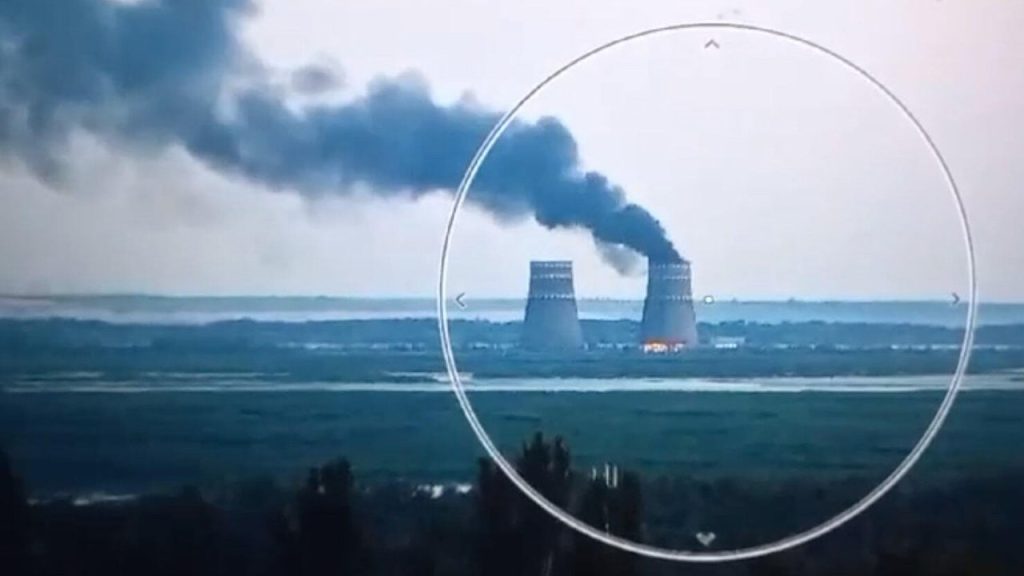The recent fire that occurred at Ukraine’s Zaporizhzhia nuclear power plant has raised concerns over a potential nuclear meltdown, with both Moscow and Kyiv pointing fingers at each other. Russian forces have been illegally occupying the plant for more than two years, and accusations of a drone attack hitting one of the plant’s cooling towers have added fuel to the fire. Dmitry Rogozin, a Kremlin representative in Zaporizhzhia, was reportedly at the plant shortly before the alleged attack, raising questions about his involvement. Ukrainian President Volodymyr Zelenskyy has accused Russia of setting fire to the plant in an attempt to blackmail Ukraine and Europe, emphasizing the need for Ukrainian control over the facility for safety.
The International Atomic Energy Agency (IAEA) has confirmed that the fire at the plant has been extinguished and that there was no impact on nuclear safety or radiation levels. However, the IAEA has expressed concern over the ongoing attacks in the area, condemning them as reckless and a threat to nuclear safety. The agency has called for an immediate stop to such attacks to prevent the risk of a nuclear accident. Ukrainian officials have also emphasized the importance of maintaining control over the Zaporizhzhia plant to ensure normalcy and safety in the region.
The IAEA has requested immediate access to the cooling tower to determine the cause of the fire, but it remains unclear whether access was granted. Both Russia and Ukraine continue to trade accusations over the incident, with Moscow claiming that Ukrainian forces were responsible for the attack while Kyiv maintains that Russian forces were behind it. The situation at the Zaporizhzhia plant highlights the broader conflict between the two countries and the potential implications for nuclear safety in the region.
The presence of nuclear power plants in conflict zones raises concerns about the safety and security of such facilities, especially in the event of attacks or sabotage. The incident at the Zaporizhzhia plant underscores the need for international cooperation and oversight to prevent the escalation of tensions and ensure the safe operation of nuclear facilities. The IAEA’s involvement in monitoring the situation and calling for an end to reckless attacks is crucial in maintaining nuclear safety and preventing the risk of a catastrophic accident.
The ongoing conflict between Russia and Ukraine has highlighted the vulnerability of critical infrastructure, including nuclear power plants, to military attacks and sabotage. The fire at the Zaporizhzhia plant serves as a stark reminder of the potential consequences of such actions and the importance of international cooperation in preventing such incidents. Both Russia and Ukraine must work together to de-escalate tensions and ensure the safe operation of nuclear facilities to avoid a potentially catastrophic nuclear accident. The IAEA’s role in investigating the incident and calling for an end to attacks is vital in promoting nuclear safety and preventing further escalation of the conflict.


